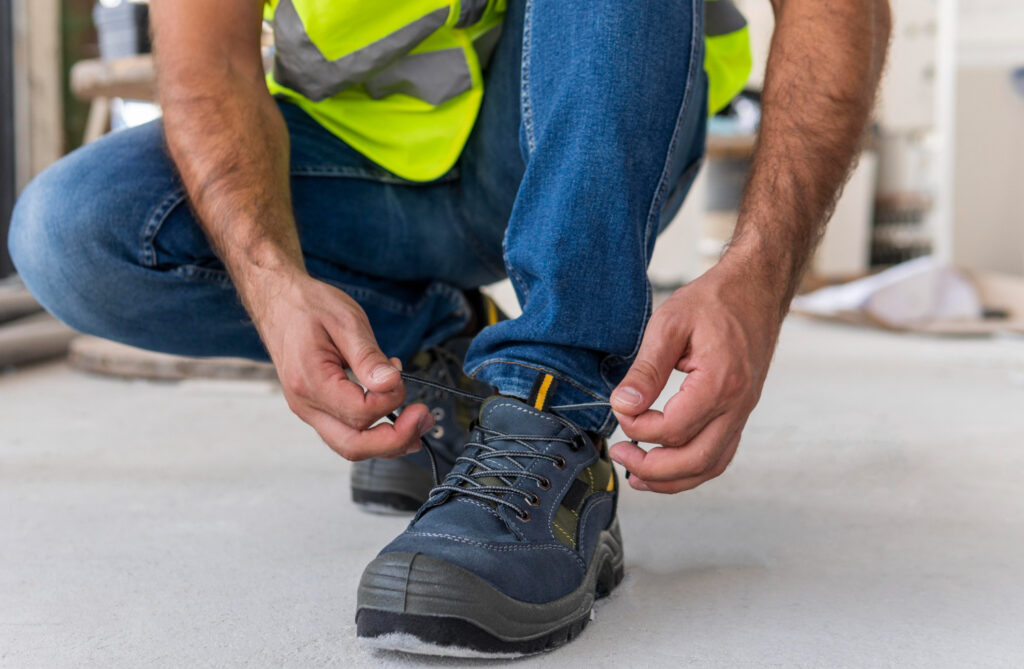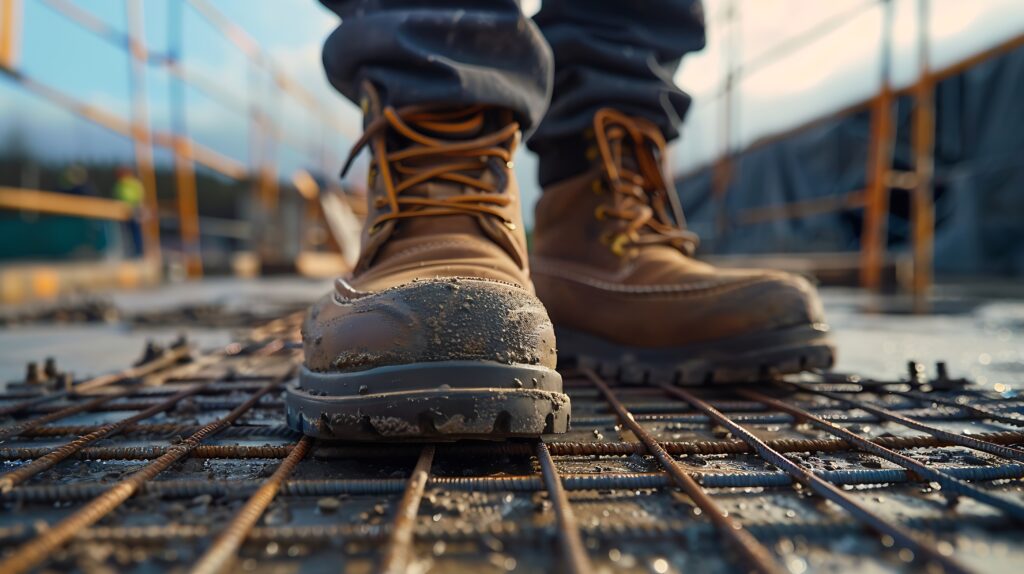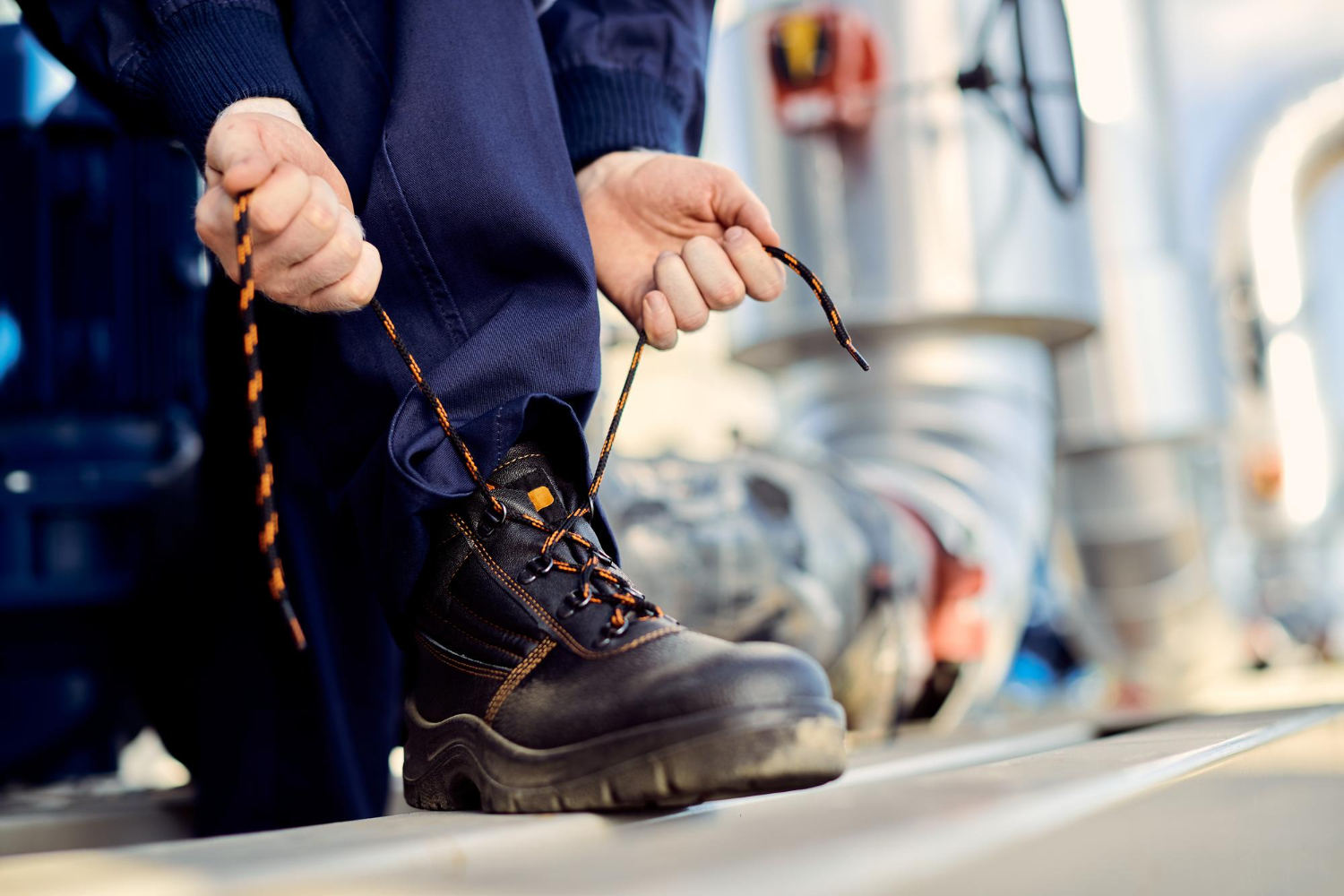Safety in the workplace isn’t just a priority; it’s a necessity. Whether you’re working on a construction site, in a manufacturing plant, or within a bustling warehouse, safety boots play a critical role in protecting workers from potential hazards.
These sturdy, reliable shoes are more than just footwear—they’re a vital piece of personal protective equipment that can prevent injuries, save lives, and ensure compliance with safety regulations.
In this blog post, we’ll explore the importance of safety boots and why every worker should consider them indispensable.
Table of Contents
ToggleUnderstanding Safety Boots
What Are Safety Boots?
Safety boots are specialized footwear designed to protect your feet from various workplace hazards.
They are equipped with features like steel or composite toes, slip-resistant soles, and durable materials to shield against injuries. Different types of safety boots include steel toe, composite toe, and slip-resistant varieties, each serving specific protective functions.
Importance of Safety Boots in Various Industries
From construction to logistics, safety boots are essential across multiple sectors. In industries where heavy machinery, sharp tools, and hazardous materials are commonplace, the right pair of boots can make all the difference.
They provide a crucial layer of protection, reducing the risk of accidents and ensuring a safer work environment.
The Top 5 Reasons to Wear Safety Boots
1. Protection from Physical Injuries
Preventing Crushing and Falling Objects
Every year, countless workers suffer injuries from heavy or sharp objects falling unexpectedly. Safety boots, particularly those with steel or composite toes, offer robust protection against such incidents. By absorbing the impact, these boots shield your feet from severe injuries.
Preventing Punctures and Cuts
On a job site, there’s always the risk of stepping on sharp objects like nails or glass. Work boots come with anti-penetration features that prevent these hazards from causing serious harm. Their thick soles and reinforced materials act as a barrier against punctures and cuts, keeping your feet safe.

2. Enhanced Stability and Support
Reducing Slips and Falls
Slippery surfaces are a common hazard in many workplaces. Safety boots with slip-resistant soles provide better traction, minimizing the risk of slips and falls. This feature is particularly beneficial in environments where spills, wet surfaces, or uneven terrain are prevalent.
Ankle and Foot Support
Walking on uneven surfaces or handling heavy loads can strain your ankles and feet. Safety boots offer excellent support, stabilizing your foot and reducing the risk of sprains or other injuries. Their ergonomic design ensures that your feet remain well-supported during long work hours.
3. Comfort and Fatigue Reduction
Alleviating Foot Fatigue
Long work hours can take a toll on your feet, leading to fatigue and discomfort. Safety boots with cushioned soles and ergonomic features are designed to alleviate this issue. They distribute your weight evenly, reducing pressure points and keeping your feet comfortable throughout the day.
Improving Overall Comfort
Comfort is a crucial factor when selecting safety boots. Look for features like breathable materials and arch support, which enhance comfort and reduce irritation. The right pair of boots will keep your feet feeling fresh and supported, even during extended shifts.
4. Protection Against Environmental Hazards
Electrical Hazard Protection
Electrical hazards are a serious concern in many work environments. Safety boots with insulating properties protect against electric shocks, providing an essential safeguard for workers in such settings. These boots are designed to prevent the conduction of electricity, keeping you safe from potential shocks.
Protection from Extreme Weather
Working in extreme temperatures can be challenging. Safety boots offer insulation from both cold and heat, ensuring your feet remain comfortable and protected. Whether you’re facing freezing conditions or blazing heat, these boots help maintain a stable environment for your feet.
5. Compliance with Safety Regulations
Meeting Legal Safety Standards
Compliance with safety standards is mandatory in many industries. Safety boots that meet OSHA requirements and other regulations ensure that your workplace adheres to legal guidelines. By wearing compliant footwear, you contribute to a safer work environment and avoid potential legal issues.
Reducing Liability and Insurance Costs
Investing in quality safety boots can significantly reduce workplace liabilities and insurance premiums. When employees are well-protected, the likelihood of accidents decreases, leading to fewer claims and lower costs. It’s a win-win situation for both employers and workers.

Choosing the Right Safety Boots
Factors to Consider When Selecting Work Boots
Selecting the right safety boots involves considering factors like fit, material, and specific job requirements. Ensure that the boots are the correct size and provide ample protection for your particular needs. Additionally, pay attention to the materials used, as they affect durability and comfort.
Maintenance and Care Tips
Proper maintenance is key to extending the life of your safety boots. Regularly clean and inspect them for signs of wear and tear. Apply water-resistant treatments if necessary, and replace any damaged parts promptly to ensure ongoing protection and effectiveness.
Conclusion
Safety boots are more than just footwear—they’re a critical component of workplace safety. By investing in quality safety boots, you protect yourself from various hazards, enhance comfort, and ensure compliance with safety regulations.
If you’re looking to equip yourself with the best protective footwear, explore our safety boot options and take the first step towards a safer work environment today.
FAQs
Why should workers wear safety boots?
Safety boots offer protection against numerous workplace hazards, including crushing, punctures, slips, and electrical shocks. They are essential for maintaining a safe work environment and preventing serious injuries.
Why are safety shoes required?
Safety shoes are mandatory in many industries due to their ability to protect workers from potential hazards. Regulatory bodies like OSHA require employers to ensure that workers wear the appropriate protective footwear.
What does OSHA say about work boots?
OSHA mandates that employers assess their workplace for potential hazards and provide the necessary protective equipment, including safety boots. Compliance with these guidelines helps reduce the risk of injuries and legal issues.
What is the justification for safety shoes?
Safety shoes play a vital role in preventing workplace accidents and injuries. They provide protection, enhance stability, and ensure compliance with safety regulations, making them an indispensable part of personal protective equipment.









